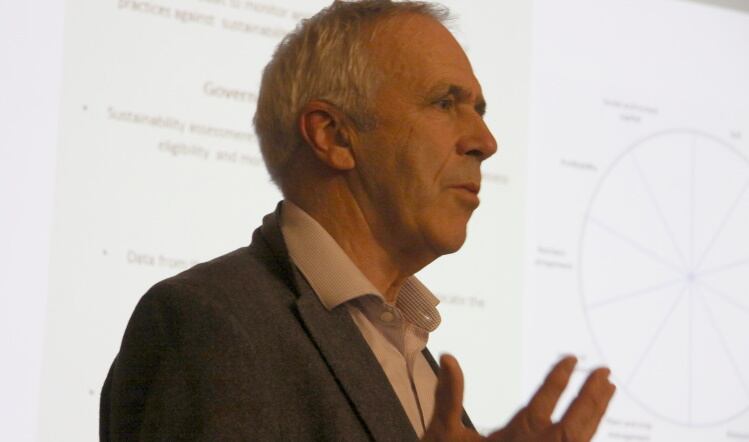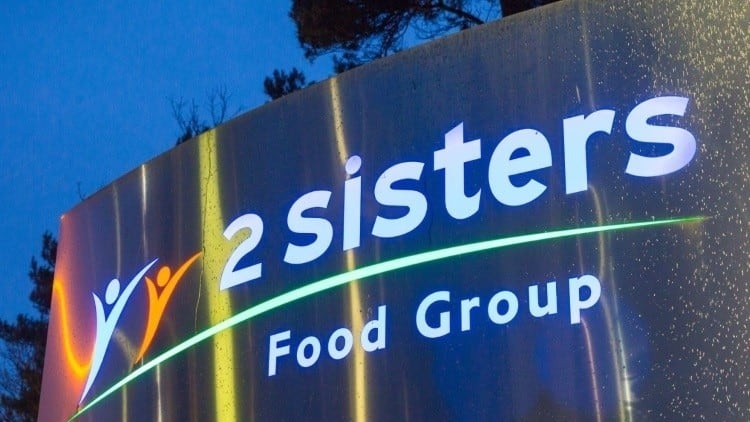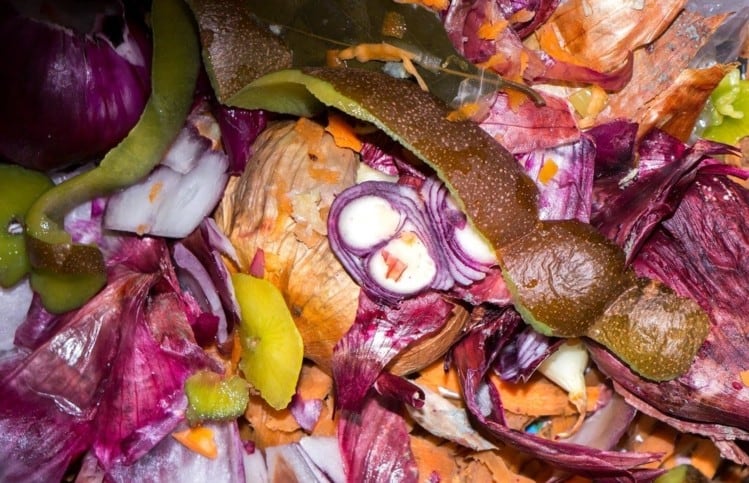Founding director and chief executive Patrick Holden called for a paradigm shift in the way food was priced to better reflect the impact its production had on the world. He was speaking at London seminar Fairness and True Costs in Agrifood Supply Chains, hosted by the Kingdom of the Netherlands.
Holden suggested initiatives and taxes that discouraged producers from using damaging practices in the manufacture of food and ensured polluters paid the true cost of making food unsustainably.
“To put it very simply, if a farmer uses a kilogram of nitrogen fertiliser, it costs them a pound and they get a three-pound return, so why would a farmer not use that?” Holden asked.
“But the European nitrogen assessment looked at the negative externalities – the air pollution, the damage to public health, the nitrogen into water sources which has to be cleaned up by water companies. They concluded at the very minimum it would have to [levy a] tax [of] three pounds if you tax those externalities. If you included the disputed aspects, which are not so easy to prove, it would probably be nine pounds.”
Fairer, sustainable system
A fairer and more sustainable system would make traditionally cheaper-to-produce food more expensive and nudge the UK into producing goods that were more beneficial to the people and the planet. Up to now this hadn’t been the case, Holden explained.
“A couple of times Unilever and Nestlé have tried to source in a more sustainable way. But I know from feedback from their buying people that they look at the price of the sustainably produced commodity, which they need to buy in volume. They compare the organic price to the conventional price and they think, well if we switch to sustainable sourcing, we’re going to lose market share.”
The crux of developing a fairer system that rewarded producers using more responsible methods of production came down to whether or not consumers would pay for the inevitable rise in the food costs.
Addressing the audience at the seminar, Professor Andrew Fearne of Norwich Business School said: “Most of us believe there are the consumers that really care about the same things that we care about, but the masses of consumers do not care about any of this.
“There are significant numbers - I might suggest, as many as 25% of the people in this country - who are still struggling to put food on their plate.”
Refusing to spend more money on food
Fearne argued that the squeeze on prices experienced by producers from the retailers was less to do with the multiples chasing profits. It was a by-product of consumers simply not wanting to spend money on food they deemed too expensive or unneeded, he claimed.
The reason producers were feeling such negative effects on the price offered them by retailers was that they were unwilling – or incapable – of adapting to systems geared more to consumer needs.
“We work very hard with our heads buried in the soil and claim it’s unfair that the price we receive for doing this in this way doesn’t cover my costs, naively oblivious to the fact that somewhere down the supply chain millions – if not billions – of pounds have been invested in infrastructure to make it easier for people to buy their food,” Fearne added.
“You can claim that we’d rather have the bakers and the butchers and the fishmongers and the cheesemongers and go back to the way it was, but how about waking up to the reality we are where we are? We get what’s coming to us.”





